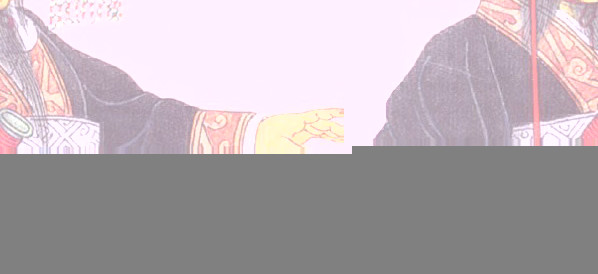 20 Terms
20 TermsHome > Terms > English (EN) > Hume's Guillotine
Hume's Guillotine
Hume's Guillotine, also known as the is-ought problem or Hume's law is a criticism of writings by ethicists who make normative claims (about what ought to be) based on positive premises (about what is). The problem was articulated by David Hume in his most important philosophical work, A Treatise of Human Nature (Book III, §I).
Hume argued that one cannot make a normative claim based on facts about the world, implying that normative claims cannot be the conclusions of reason.
The term "Hume's Guillotine" is meant to describe the severance of "is" statements from "ought" statements, which similarly, and colourfully, illustrates the resulting removal of the head from many ethical arguments.
One may consider the following moral argument as an example of an is-ought problem:
Sam is stealing money from work.
Losing money by theft causes harm to Sam's employers.
(One ought to not cause harm to his employers.)
Therefore, Sam ought to stop stealing money from work.
Premises 1 and 2 are "is" statements, describing facts of what is happening. Premise 3 and Conclusion 4 are "ought" statements, that describes how things should be happening. But what is the source of this knowledge? This argument appears to be valid if the premises are true, but unless we can logically support Premise 3, it is not sound. What can possibly give us rational knowledge that things ought to be different than the way things are?
Hume argues that we cannot, and that ought statements, and other supposed moral knowledge, are not rational.
Opponents
Not all philosophers agree that Hume's Guillotine is a real problem, or that it is correctly described.
Some philosophers believe that certain types of "is" statements may imply or infer "ought" statements. For example, any statement that corresponds to a human goal or value, especially (or exclusively) one connected to human behaviour, suggests that certain "ought" statements have validity. For example, the statement "Sam ought to stop stealing money from work if he wants to avoid punishment" appears to be, on its own, a correct derivation of an "ought" from the "is" statements mentioned above. Similarly, other arguments in the form of "A ought to B to achieve goal C", such as "Jill ought to finish her philosophy paper to earn credits for her course", do not present a problem. Opponents to this idea, however, point out that the "ought" in these cases is not derived from the "is" facts but from the goal, which is, itself, an "ought".
John Searle presented another situation which may represent the correct formation of an "ought" from an "is". Searle held that the making of a promise, by definition, creates an obligation for the promise-maker, which, as an "is", implies an "ought". Some opponents to Searle's claim, however, say that this still creates an unfounded premise, that one ought to keep one's promises.
Others seek a less logical source for "oughts" as self-evident or natural facts that can be known, as they exist in humans as common ideas, or ideals, as a product of biological evolution (or other sources).
- Part of Speech: noun
- Synonym(s):
- Blossary:
- Industry/Domain: Philosophy
- Category: General philosophy
- Company:
- Product:
- Acronym-Abbreviation:
Other Languages:
Member comments
Terms in the News
Billy Morgan
Sports; Snowboarding
The British snowboarder Billy Morgan has landed the sport’s first ever 1800 quadruple cork. The rider, who represented Great Britain in the 2014 Winter Olympics in Sochi, was in Livigno, Italy, when he achieved the man-oeuvre. It involves flipping four times, while body also spins with five complete rotations on a sideways or downward-facing axis. The trick ...
Marzieh Afkham
Broadcasting & receiving; News
Marzieh Afkham, who is the country’s first foreign ministry spokeswoman, will head a mission in east Asia, the state news agency reported. It is not clear to which country she will be posted as her appointment has yet to be announced officially. Afkham will only be the second female ambassador Iran has had. Under the last shah’s rule, Mehrangiz Dolatshahi, a ...
Weekly Packet
Language; Online services; Slang; Internet
Weekly Packet or "Paquete Semanal" as it is known in Cuba is a term used by Cubans to describe the information that is gathered from the internet outside of Cuba and saved onto hard drives to be transported into Cuba itself. Weekly Packets are then sold to Cuban's without internet access, allowing them to obtain information just days - and sometimes hours - after it ...
Asian Infrastructure Investment Bank (AIIB)
Banking; Investment banking
The Asian Infrastructure Investment Bank (AIIB) is an international financial institution established to address the need in Asia for infrastructure development. According to the Asian Development Bank, Asia needs $800 billion each year for roads, ports, power plants or other infrastructure projects before 2020. Originally proposed by China in 2013, a signing ...
Spartan
Online services; Internet
Spartan is the codename given to the new Microsoft Windows 10 browser that will replace Microsoft Windows Internet Explorer. The new browser will be built from the ground up and disregard any code from the IE platform. It has a new rendering engine that is built to be compatible with how the web is written today. The name Spartan is named after the ...
Featured Terms
Qin Shi Huang
Qin Shi Huang (259 BC – 210 BC) was the first emperor of a unified China's between 221BC and 210BC. Born in Han Dan, capital of Zhao Guo, he was the ...
Contributor
Featured blossaries
Tatevik888
0
Terms
5
Blossaries
0
Followers
Journalistic Terms and Expressions
 12 Terms
12 TermsBrowers Terms By Category
- Chocolate(453)
- Hard candy(22)
- Gum(14)
- Gummies(9)
- Lollies(8)
- Caramels(6)
Candy & confectionary(525) Terms
- Social media(480)
- Internet(195)
- Search engines(29)
- Online games(22)
- Ecommerce(21)
- SEO(8)
Online services(770) Terms
- ISO standards(4935)
- Six Sigma(581)
- Capability maturity model integration(216)
Quality management(5732) Terms
- Mapping science(4042)
- Soil science(1654)
- Physical oceanography(1561)
- Geology(1407)
- Seismology(488)
- Remote sensing(446)
Earth science(10026) Terms
- General Finance(7677)
- Funds(1299)
- Commodity exchange(874)
- Private equity(515)
- Accountancy(421)
- Real estate investment(192)




